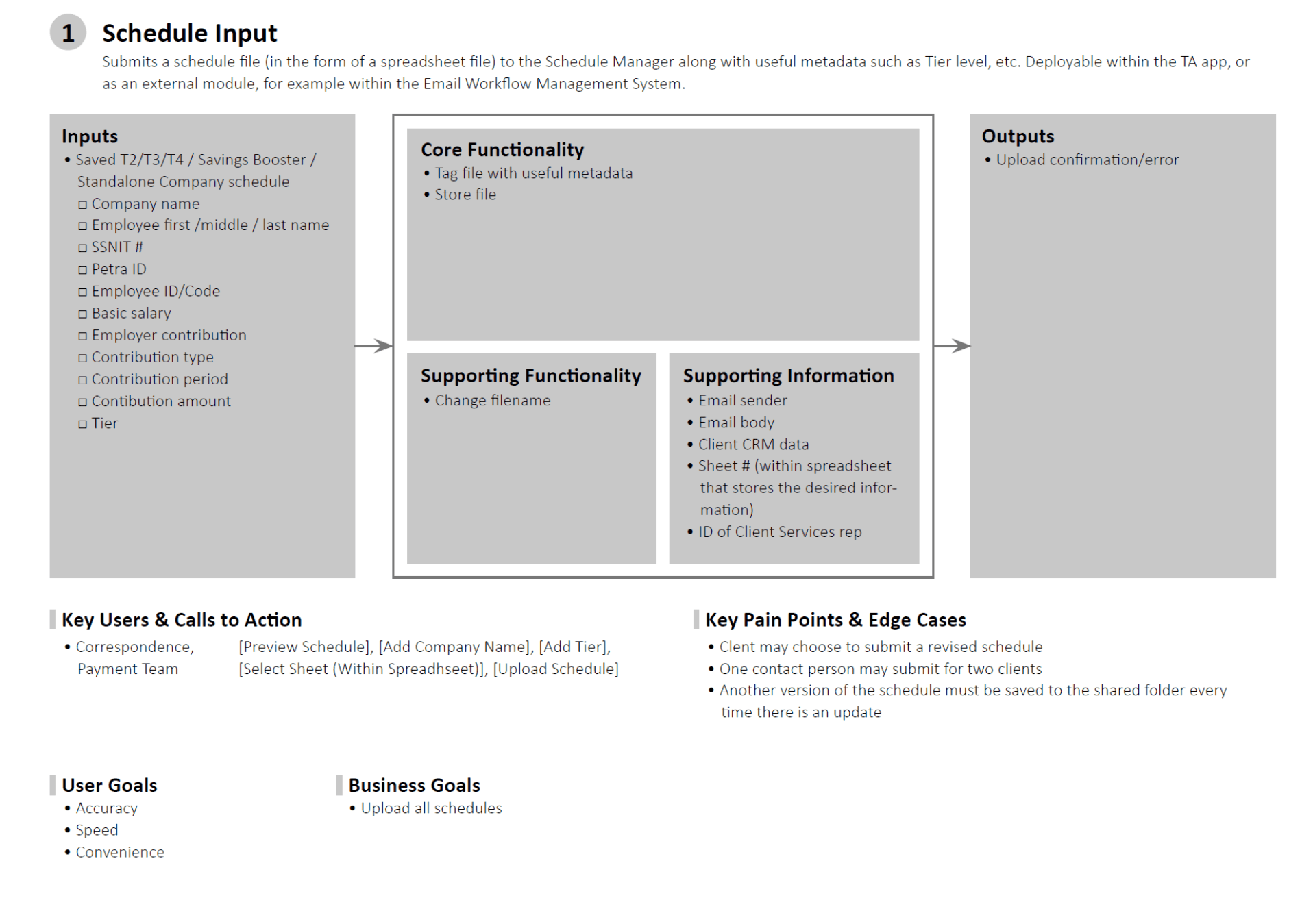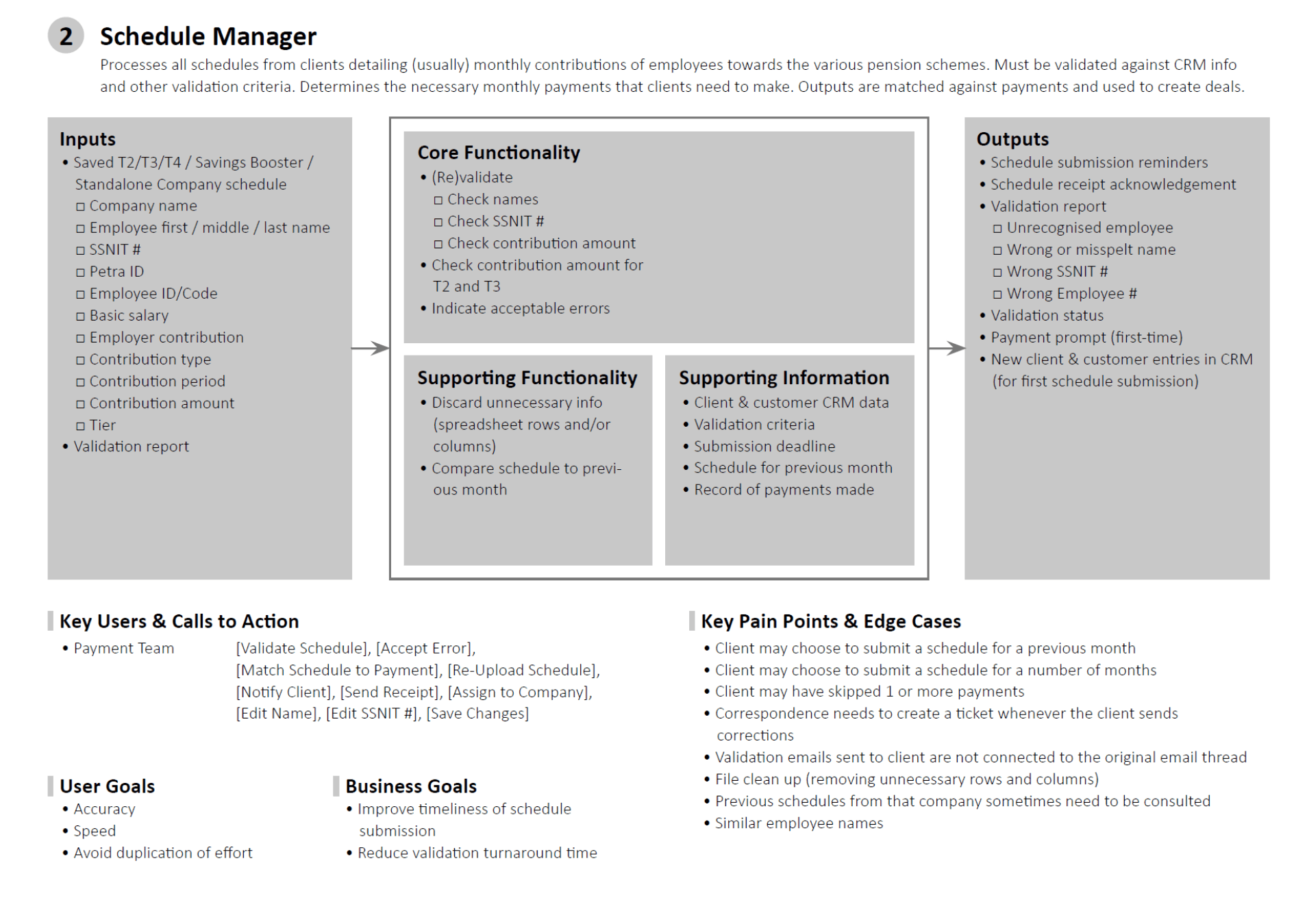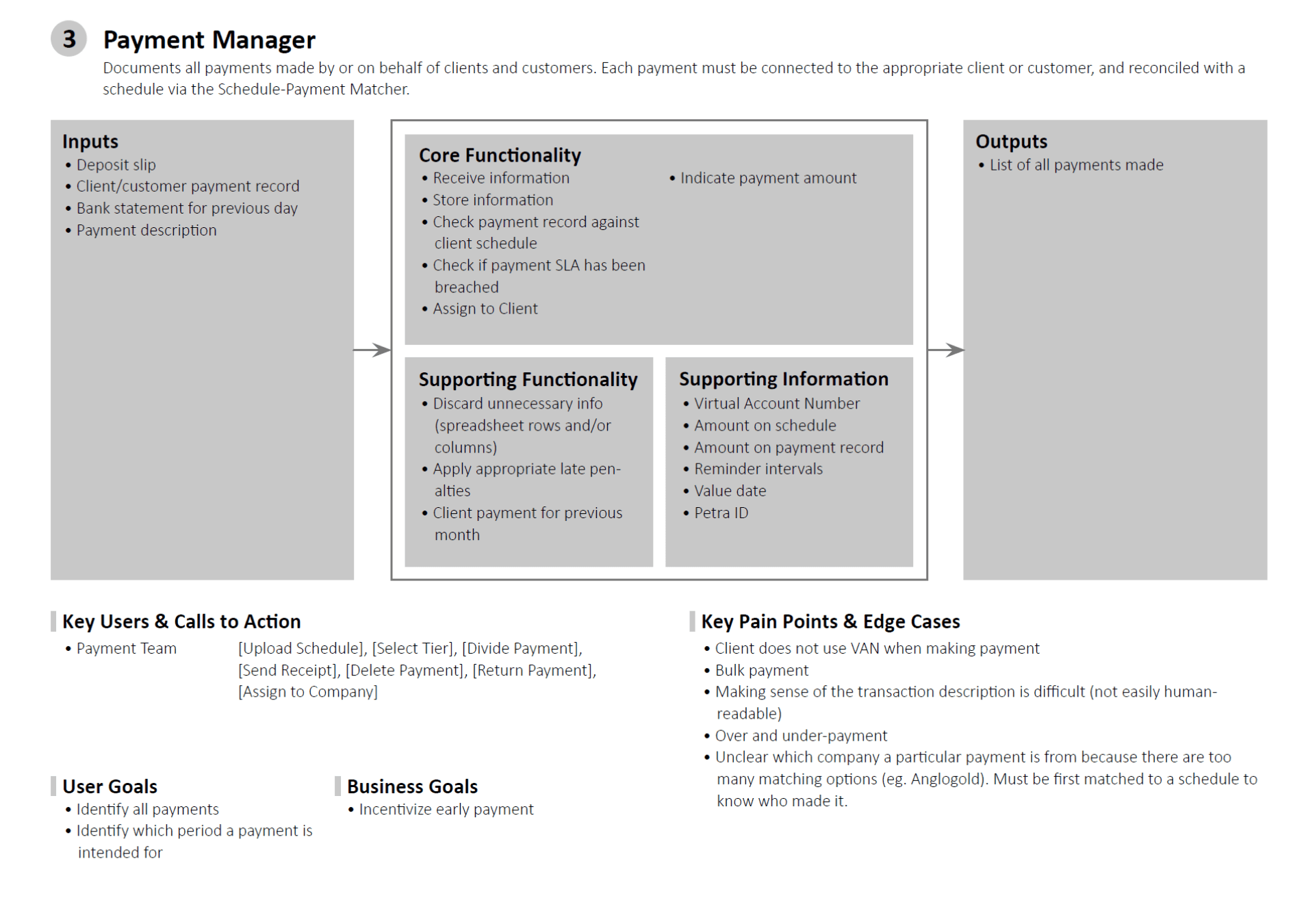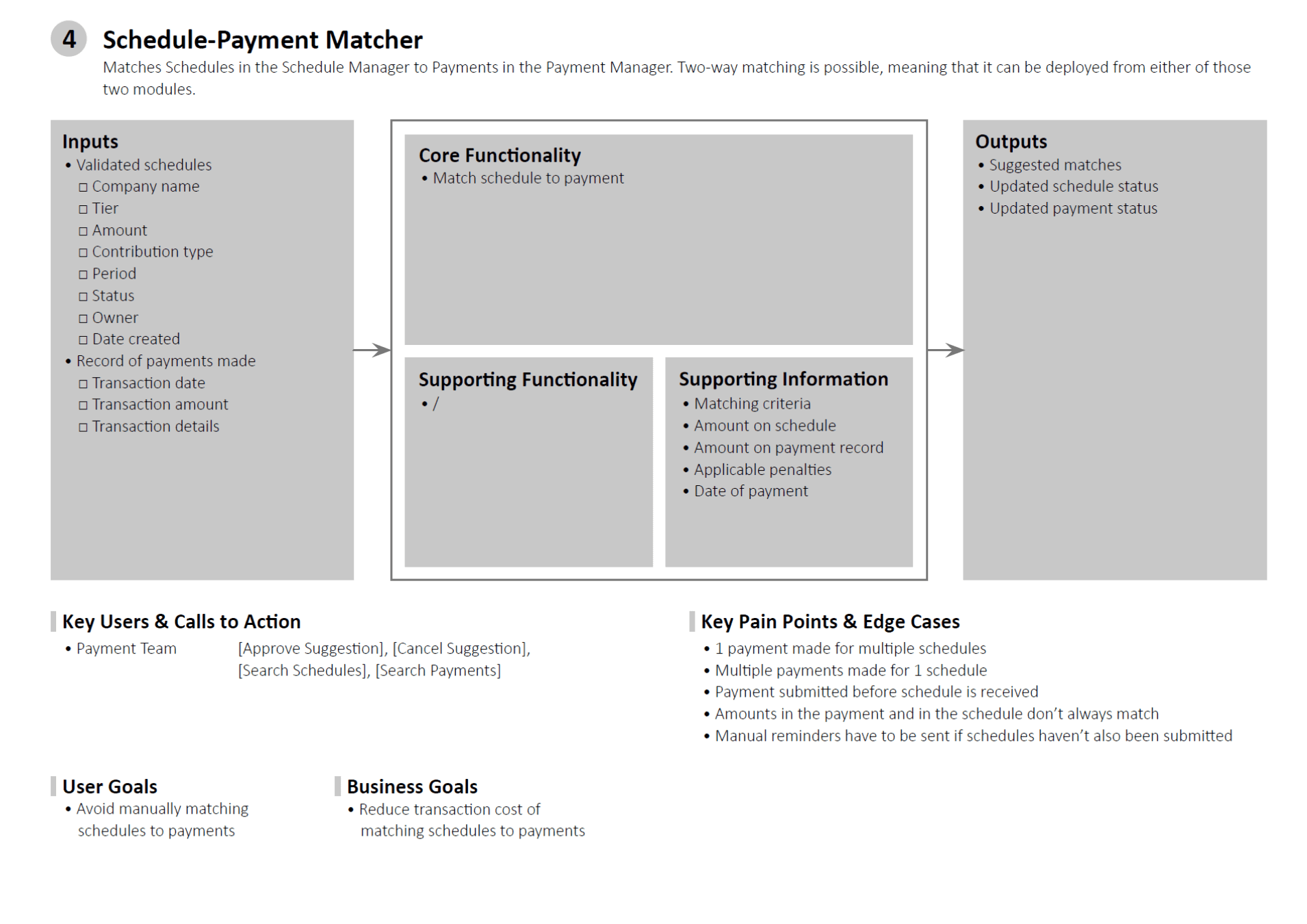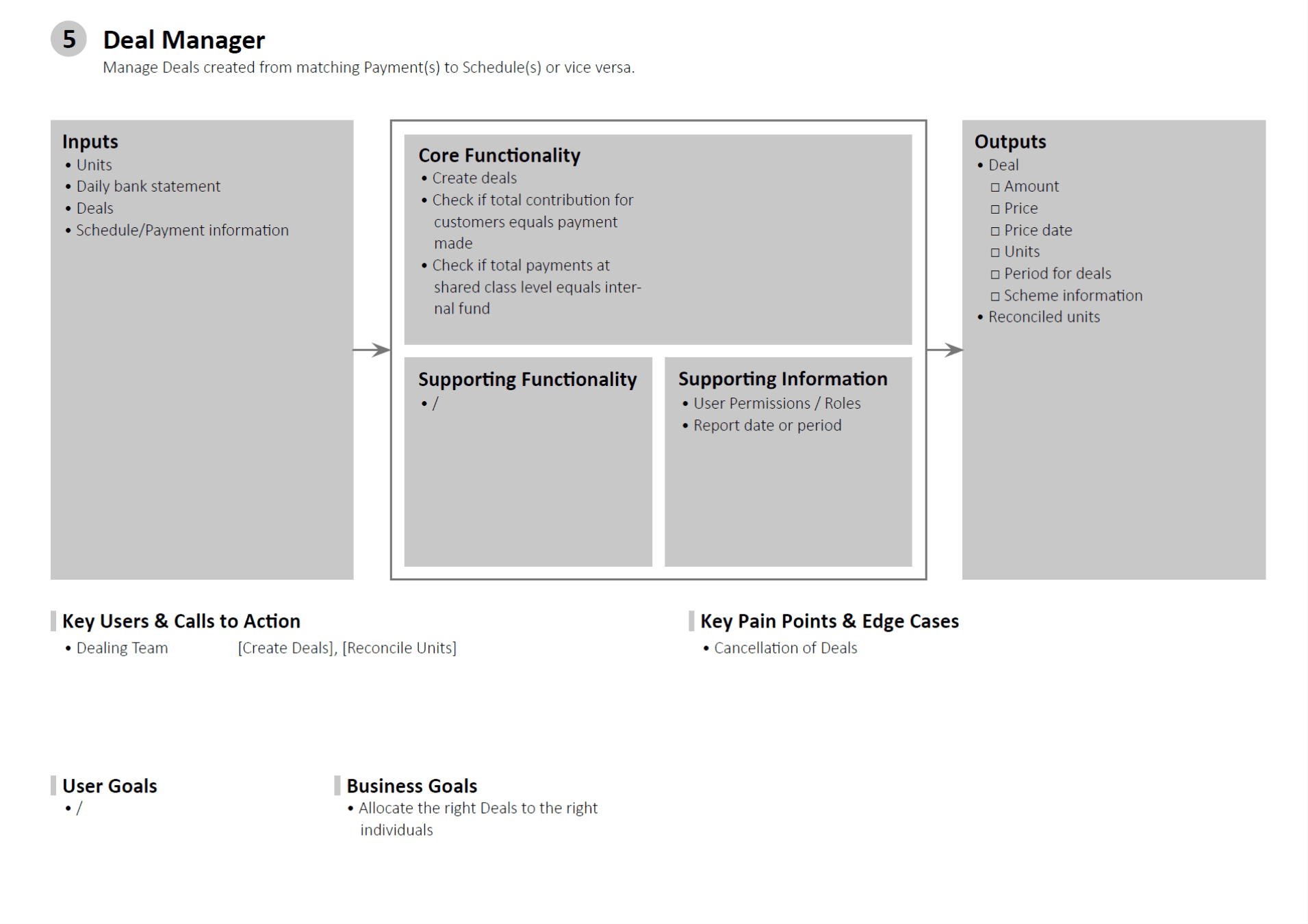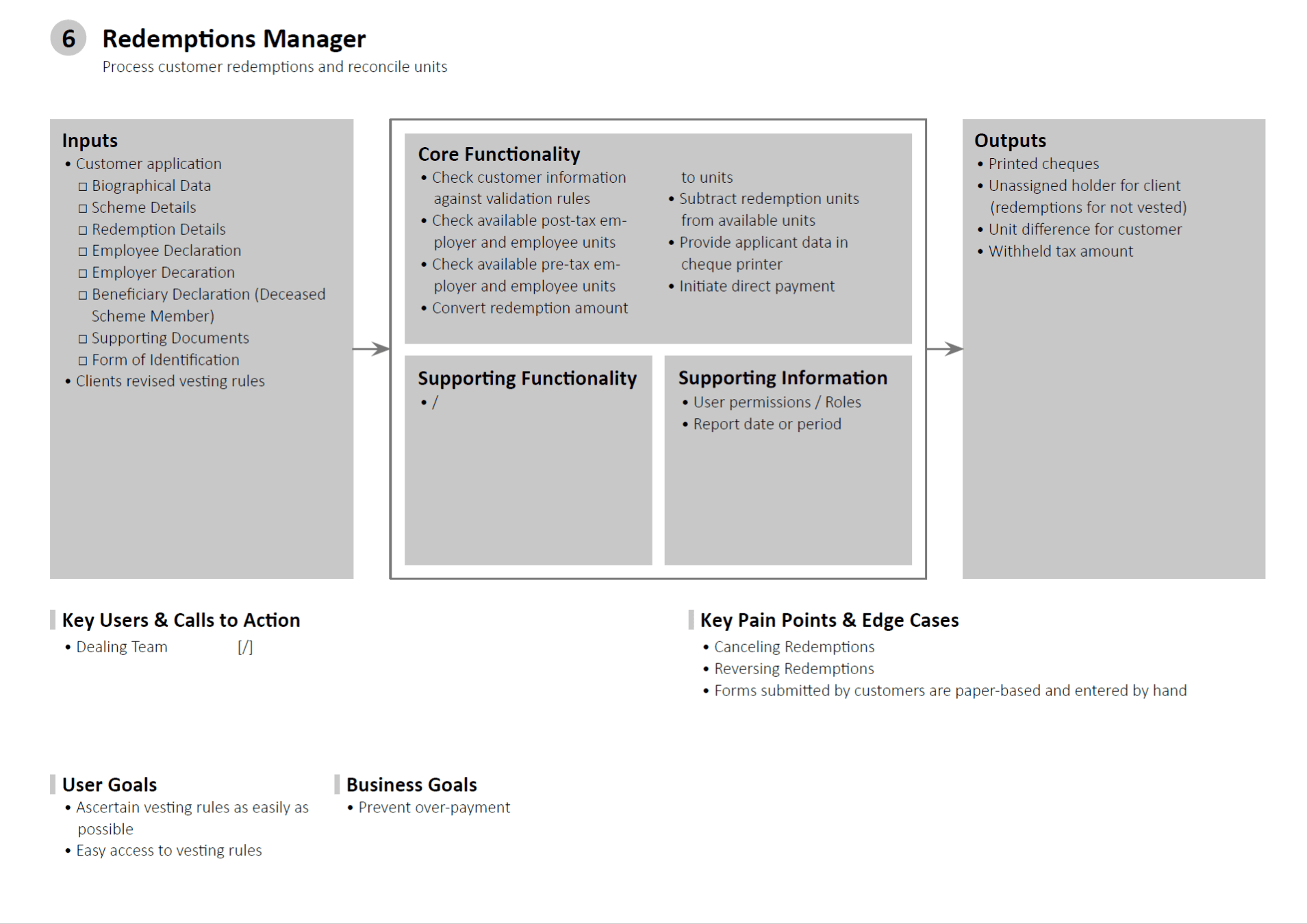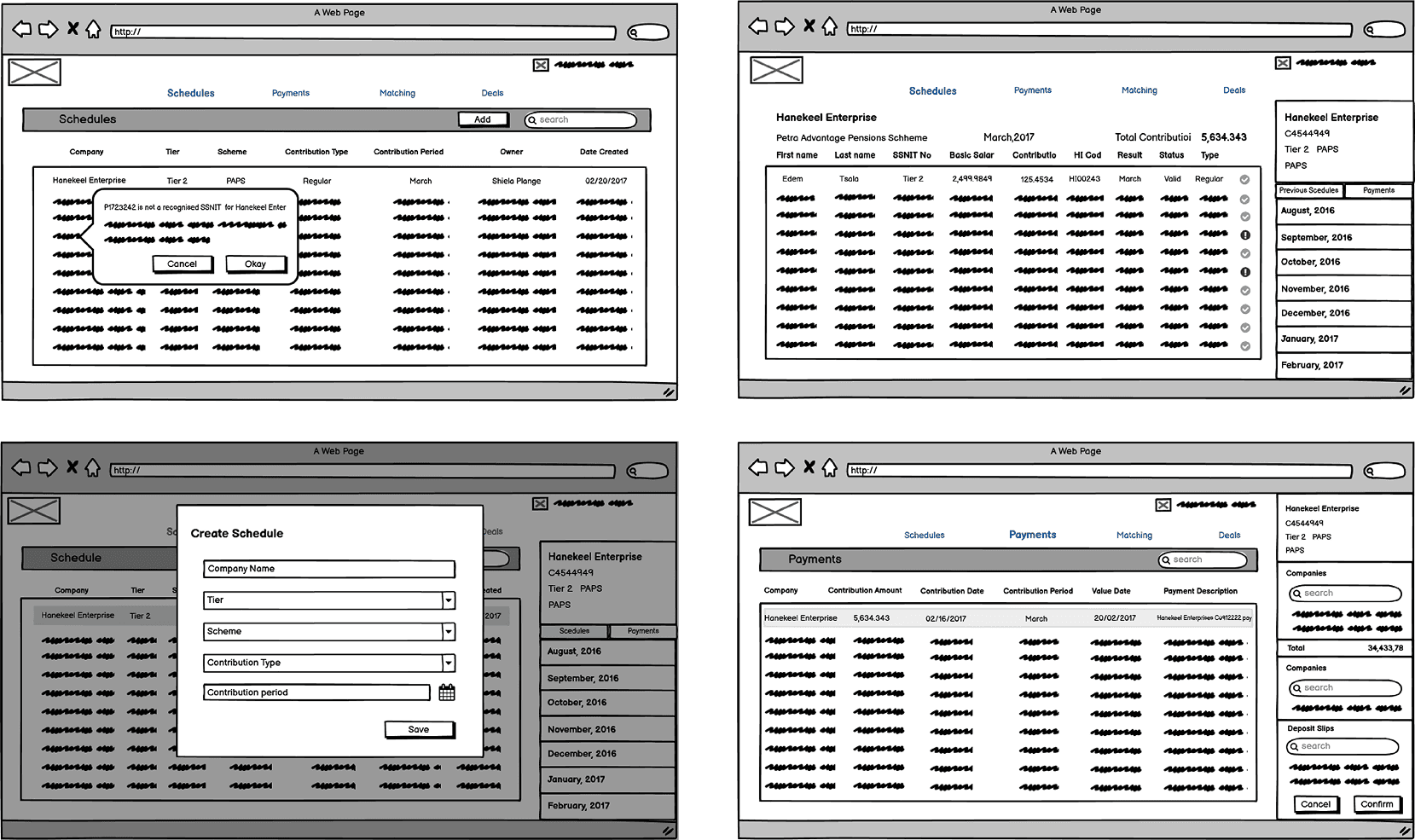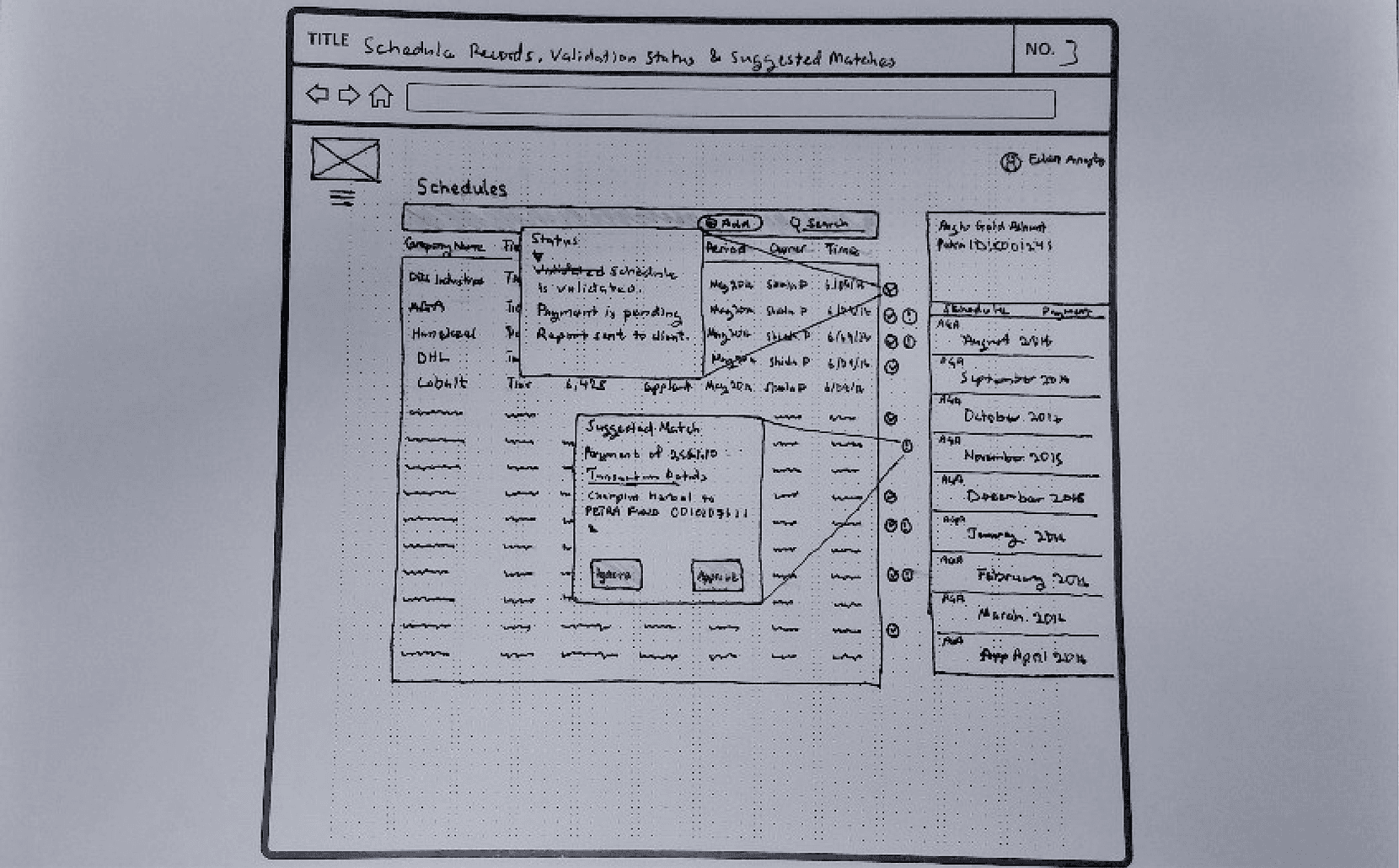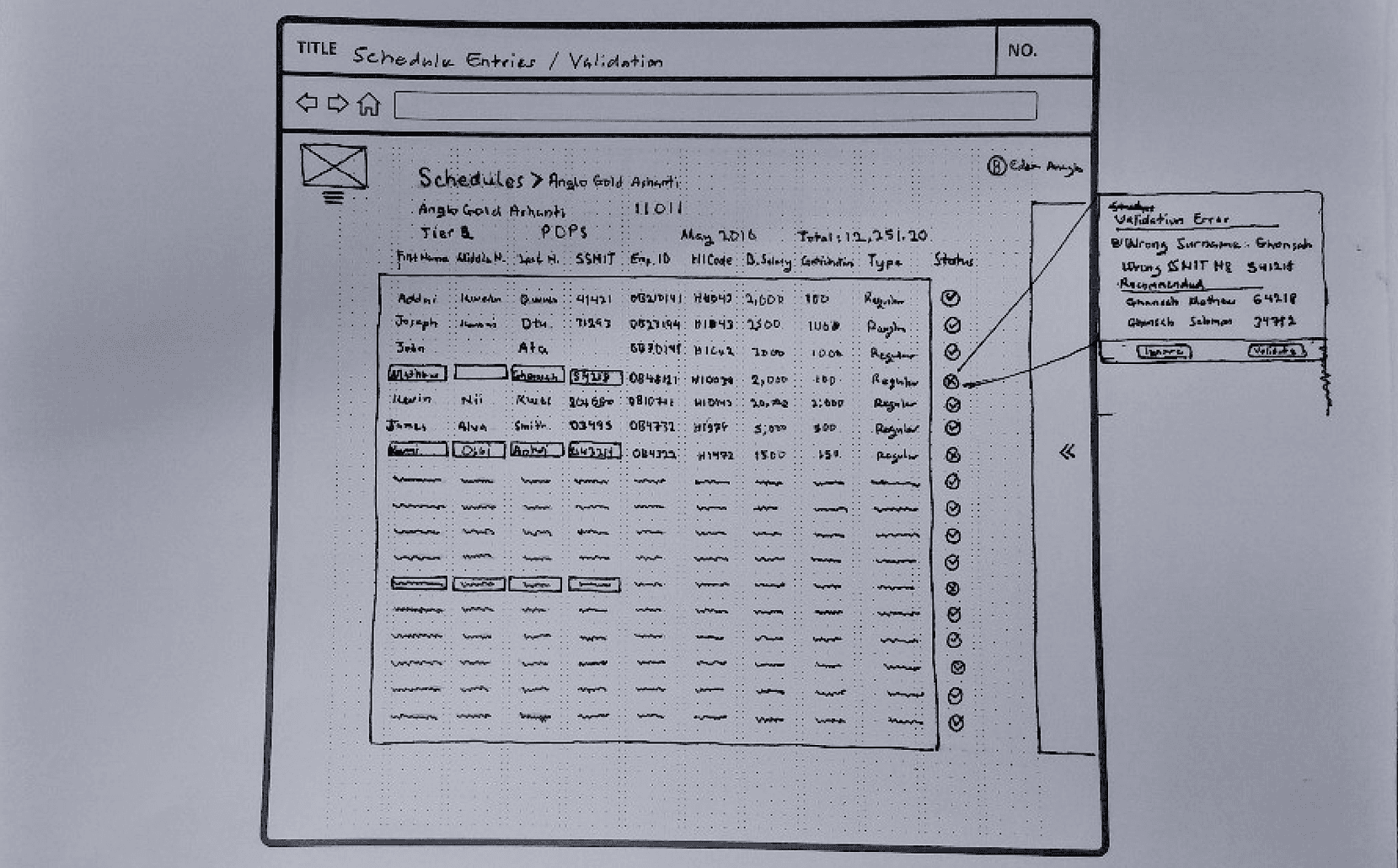Designing tools for processing pensions
Designing tools for processing pensions
Designing tools for processing pensions
Petra Trust manages pension schemes and provides support services to individuals and corporations. I helped design two essential applications. A Workflow Management System that streamlines client schedules and communications, and a Transfer Agency App that processes and tracks all pension contributions.
YEAR
2017
ROLE
UX Designer



Discovery
Our discovery phase focused on three goals:
Understanding the business’s process
Identifying staff challenges.
Finding areas for improvement.
We began with Q&A sessions with department leaders. Next, we conducted a series of contextual inquiries with selected staff members. This helped map precise workflows and behaviors. Finally, our team synthesized all the gathered information in deep-dive sessions.


A Modular Approach (Cores and Paths)
The complexity of Petra’s workflow required a new approach. We divided the entire process into distinct modules, with each representing a single stage. For every module, we used diagrams to clearly map user goals, business goals, and pain points. This ensured we captured all variables at every stage. Ultimately, these modules validated our user stories and structured our development sprints.
Behaviour by Design
We analysed our insights to define the best user experience for our users. In an attempt to achieve our design decisions were guided by four core principles:
Anticipation
Making decisions in response to or in preparation for the user's next step.


Confluence
Bringing related but essentially different kinds of information together in a meaningful way.


Passive Processing
Processing information without the user's active involvement.


Low Density
Minimizing the amount of information the user is exposed to at a given time.


Failing Fast
Following brainstorming, we rapidly translated ideas into low-fidelity prototypes for user testing. This enabled us to quickly iterate and test until we found promising results.
Final Design Decisions
Workflow Management System
Here are a few shots from our final mockups for both applications after a few iterations.




Workflow Management System
Here are a few shots from our final mockups for both applications after a few iterations.




Key Challenges
Uncovering Hidden User Friction
Payment verification required switching screens, which the business initially resisted fixing. We implemented a side panel to display schedules and payment history simultaneously. Usability testing confirmed this change substantially reduced processing time.
Learning to ask "Why?" more often
Quite often, failed to capture the "why" behind user procedures. My reluctance to ask probing questions, fearing workflow disruption, created a gap in vital insights. I realised that obtaining deep user motivation was critical for a successful design, which forced me to overcome my personal hesitation.
Outcomes
Improved Operational Efficiency
2 - 4 hrs
In staff hours freed up by reducing pension contribution processing time.
Higher Throughput with Fewer Errors
Clearer task ownership and handoffs reduced rework and escalations, increasing daily processing capacity
Short-Term Productivity Dip Post-Launch
Initial productivity dipped during workflow adoption, then stabilised following targeted training and refinements.
Learnings
This project required an enterprise design approach, challenging us to enhance the workflows of multiple teams simultaneously. We adapted our user-centered design to satisfy the needs of the entire organization, focusing on collective team input.
Enterprise software often favors raw functionality over employee experience. Our solution successfully operates in the grey area, proving that vital function and great usability can coexist.
Discovery
Discovery
Our discovery phase focused on three goals:
Understanding the business’s process
Identifying staff challenges.
Finding areas for improvement.
We began with Q&A sessions with department leaders. Next, we conducted a series of contextual inquiries with selected staff members. This helped map precise workflows and behaviors. Finally, our team synthesized all the gathered information in deep-dive sessions.


A Modular Approach (Cores and Paths)
The complexity of Petra’s workflow required a new approach. We divided the entire process into distinct modules, with each representing a single stage. For every module, we used diagrams to clearly map user goals, business goals, and pain points. This ensured we captured all variables at every stage. Ultimately, these modules validated our user stories and structured our development sprints.
Behaviour by Design
Behaviour by Design
We analysed our insights to define the best user experience for our users. In an attempt to achieve our design decisions were guided by four core principles:
Anticipation
Making decisions in response to or in preparation for the user's next step.


Confluence
Bringing related but essentially different kinds of information together in a meaningful way.


Passive Processing
Processing information without the user's active involvement.


Low Density
Minimizing the amount of information the user is exposed to at a given time.


Failing Fast
Failing Fast
Following brainstorming, we rapidly translated ideas into low-fidelity prototypes for user testing. This enabled us to quickly iterate and test until we found promising results.
Final Design Decisions
Final Design Decisions
Workflow Management System
Workflow Management System
Here are a few shots from our final mockups for both applications after a few iterations.




Workflow Management System
Workflow Management System
Here are a few shots from our final mockups for both applications after a few iterations.




Key Challenges
Key Challenges
Uncovering Hidden User Friction
Uncovering Hidden User Friction
Payment verification required switching screens, which the business initially resisted fixing. We implemented a side panel to display schedules and payment history simultaneously. Usability testing confirmed this change substantially reduced processing time.
Learning to ask "Why?" more often
Learning to ask "Why?" more often
Quite often, failed to capture the "why" behind user procedures. My reluctance to ask probing questions, fearing workflow disruption, created a gap in vital insights. I realised that obtaining deep user motivation was critical for a successful design, which forced me to overcome my personal hesitation.
Outcomes
Outcomes
Improved Operational Efficiency
2 - 4 hrs
2 - 4 hrs
In staff hours freed up by reducing pension contribution processing time.
Higher Throughput with Fewer Errors
Clearer task ownership and handoffs reduced rework and escalations, increasing daily processing capacity
Short-Term Productivity Dip Post-Launch
Initial productivity dipped during workflow adoption, then stabilised following targeted training and refinements.
Learnings
Learnings
This project required an enterprise design approach, challenging us to enhance the workflows of multiple teams simultaneously. We adapted our user-centered design to satisfy the needs of the entire organization, focusing on collective team input.
Enterprise software often favors raw functionality over employee experience. Our solution successfully operates in the grey area, proving that vital function and great usability can coexist.
Featured Case Studies
